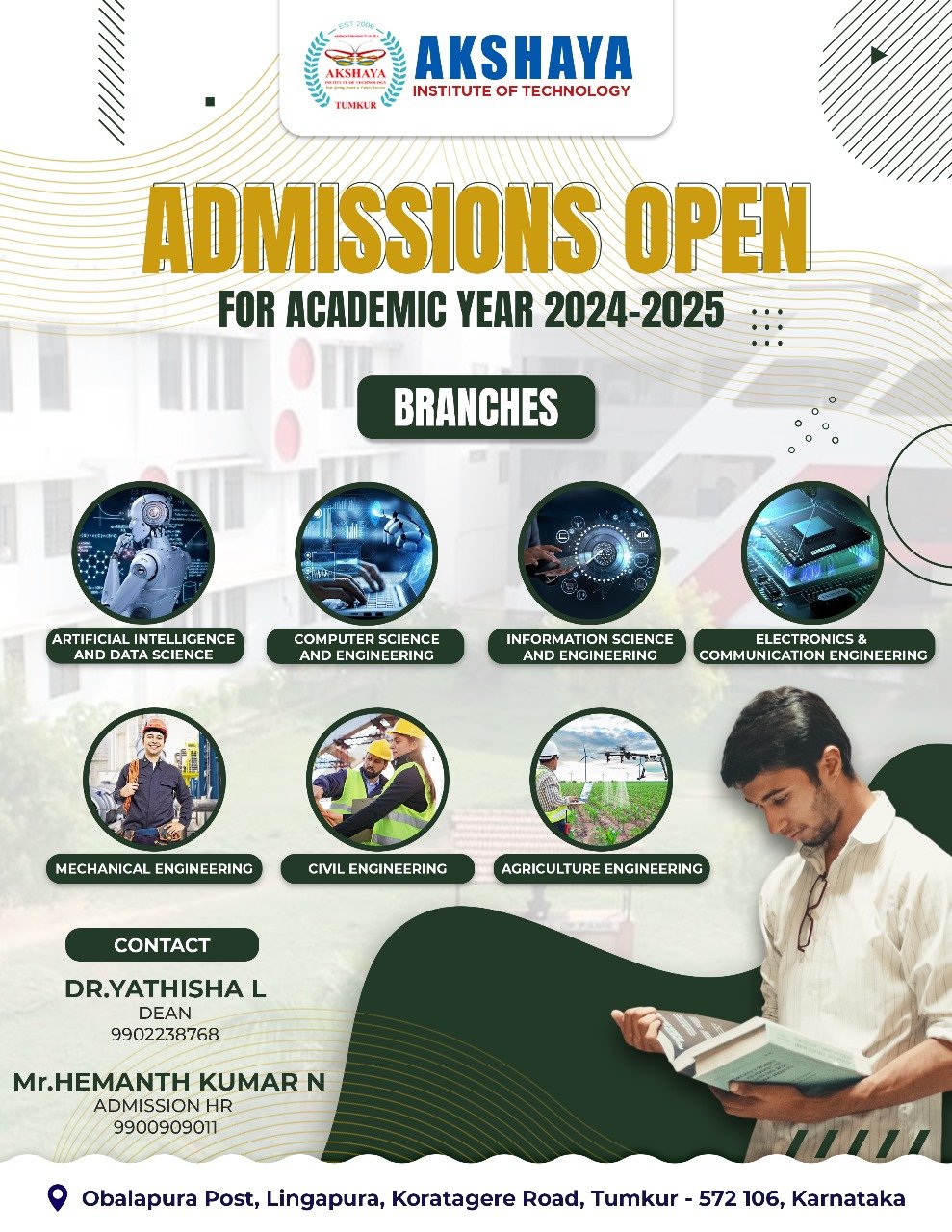© 2022 AIT Tumkur. All Rights Reserved

Department of Electronics & Communication feels proud of the quality & need based instruction & Practical training imparted to its students to face the challenges of the fast changing corporate and technical world. Because of the dedicated faculty & excellent coaching in both theoretical and practical, students coming out of from the portal of the ECE department are placed in top ranking companies in India & abroad, many students have gone for higher studies. In ECE department, students will study wide Varity of Theoretical & industry oriented subjects. The students will also implement their theoretical knowledge through mini & major projects which involve the innovative ideas & social relevance. It also provides a platform for the Research in the emerging areas through its research center & exhibit student co-curricular activities, paper presentation, innovative ideas, technical talents through e-club. ECE department is a right place to choose to reach the goal & shape up the carrier.










To produce competent engineering professionals in the field of Electronics and Communication Engineering by imparting value based quality technical education to meet the societal needs and to develop socially responsible citizens.
After Successful Completion of Electronics and Communication Engineering Program Students will be able to
KSCST approved final year project
The project entitled “MICRO SMART CITY” of Electronics & Communication Engineering Department have been selected for financial support by Karnataka State Council for science and Technology (KSCST) with the fund of rupees 5000. The management, the principal, the staff congratulate the project guide Mrs. Shruthi A B Assistant professor ECE, Dept and students Bhimesh Mahadev Kurabet, Divya P J, Shrishti Ningappa Mirji & Apoorva J for their achievements.
Powered By EmbedPress
PLACEMENT DETAILS:
The final year student Praveenakumara C T (1AK20EC015) has been placed for the company Semi-search technologies Pvt Ltd with the package of 3 LPA. The management, the principal, the staff congratulate the Praveenakumara C T.
The final year student Bhimesh Mahadev Kurabet (1AK20EC006) has been placed for the company Q- Spiders technologies Pvt Ltd. The management, the principal, the staff congratulate the Bhimesh Mahadev Kurabet.
The final year student Sunitha V K (1AK20EC021) has been placed for the company Q- Spiders technologies Pvt Ltd. The management, the principal, the staff congratulate the Sunitha V K.
© 2022 AIT Tumkur. All Rights Reserved

Dr. Sreenivas Rao K V Principal
8904020261
Dr. Yathisha L Dean
9902238768
Mr Chethan C N Admission HR
9900909011, 9686482040
Ms. Bhoomika K Admission HR
7259231173
Mr. Hemanth Kumar N Admission HR
9964285413